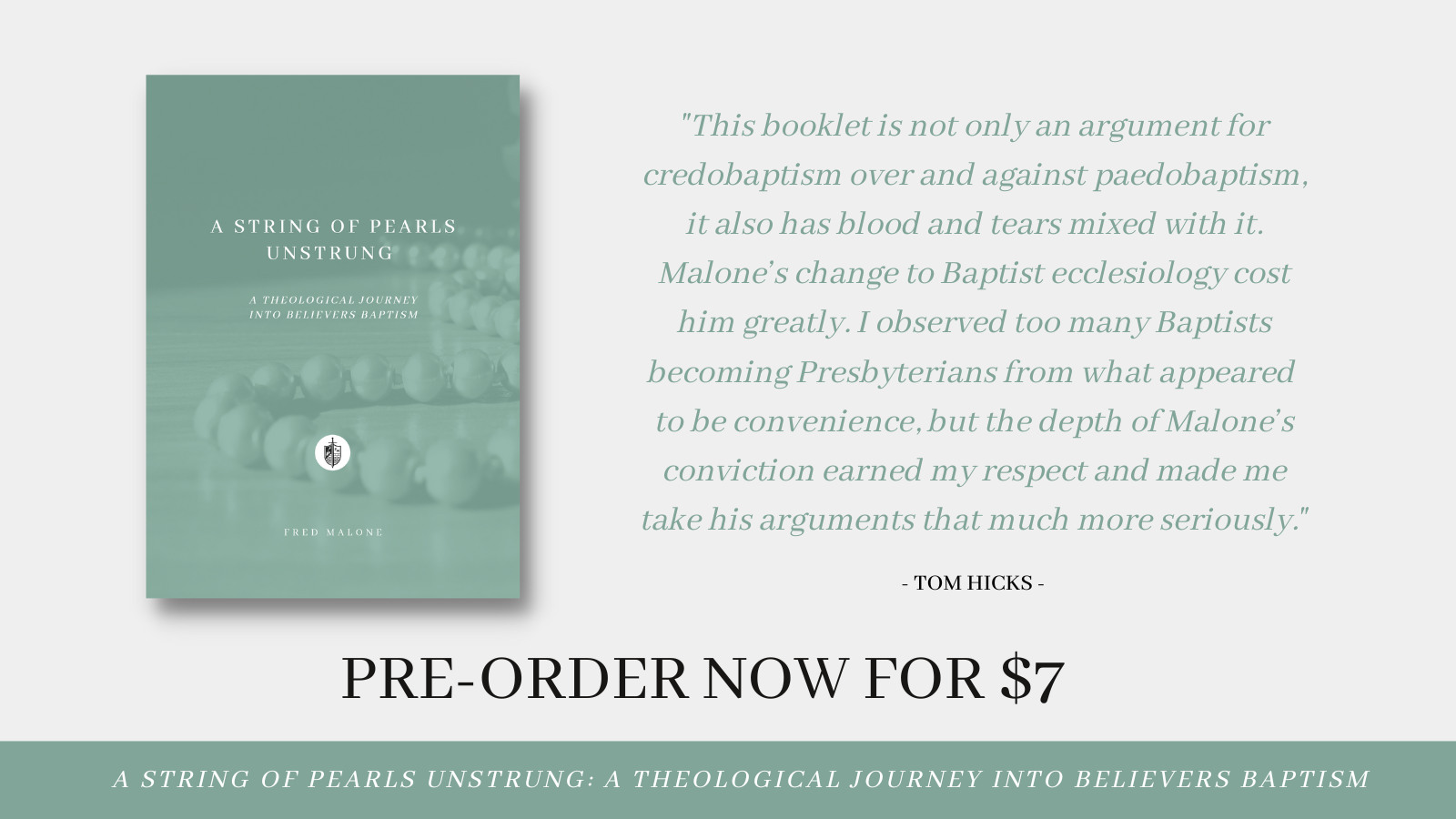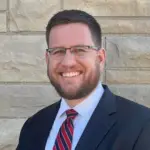Last week our friends over at CrossPolitic (CP) posted a couple of podcast episodes that understandably offended large numbers of Christians who take God’s Word seriously. They did it in the name of “rowdy Presbyterianism,” serrated edge communication, and even brotherly love. Their original failure was bad enough. But their multiple follow-up defenses of their antics suggest that their mischaracterization of Baptists might be a feature, not a bug.
For the uninformed or slightly informed, what they tried to say is that the rampant individualism that permeates much of the Baptist and evangelical world can pave the way for transgenderism in America. But what they actually said is that Baptist theology “is the cause of” transgenderism. If you want to get up to speed you can go here to see the original source of the lingering stench they created when they intentionally stomped on some cow pies and then continued to track their mess throughout the reformed evangelical house. What they should have done once friends began to complain about the stink and collectively point to the source, was stop, remove their shoes, and start cleaning up the mess they made. That would have been both right and wise.
After all, that’s how Christians live, right? We are both believers and repenters. When the Corinthians became convinced by Paul’s rebuke that they had stepped in it what did they do? They grieved in a godly manner and repented and Paul commended them for it. “For godly grief produces a repentance that leads to salvation without regret, whereas worldly grief produces death. For see what earnestness this godly grief has produced in you, but also what eagerness to clear yourselves, what indignation, what fear, what longing, what zeal, what punishment! At every point you have proved yourselves innocent in the matter” (2 Corinthians 7:10-11).
Some may not judge what the CP men did as sin that needs to be repented of. Others understandably see the accusation as slanderous. In the spirit of 1 Corinthians 4:13, I would like to entreat my brothers to own what they have broadcast on their show and recant. Even if they cannot be convinced of sin, I hope they will at the very least realize that their words and actions have certainly catapulted way beyond the walls of wisdom and deep into the fields of foolishness. Either way, what was said should have been simply and plainly renounced.
Instead, they doubled down. “What stink? Let me explain to you why the sights and smells that you find problematic are really due to your hyper-sensitivity and not the poop on our shoes.” That basic thesis has been defended first by a follow-up podcast episode and then three (so far) written essays, not to mention various social media comments. The common theme in each is, “Hey, we didn’t do anything wrong. Why are your knickers in a knot?”
What They Actually Said
Gabe Rench has rightly appealed to people to “deal fairly with what we said.” I intend to do just that because burning straw men serves only to pollute the relational environment and is beneath the kind of good-faith engagement that should mark disagreements among Christians. Of course, the same is true about defending straw men when real men have actually been critiqued. More on that later.
In a CP show called, “From Slavery to Abortion to Transgenderism—The Church Led us to the Trans Movement,” David Shannon, Gabe Rench, and Jared Longshore were joined with video-guest, Jason Farley. Farley explained the rising transgenderism with its attendant mutilation of bodies with this statement (at 14:15): “This is just American Baptist Theology secularized.” At the end of that show, Shannon encouraged viewers to join the Fight, Laugh, Feast Club so that they could hear the rest of the conversation that would take place with Farley “Backstage.” Both of those shows are helpfully embedded in Gabe Rench’s article here.
Burning straw men serves only to pollute the relational environment and is beneath the kind of good-faith engagement that should mark disagreements among Christians.
That “Backstage” episode is entitled, “The Failure of Baptist Theology,” which precisely indicates that for which they actually argue during the next 27 minutes. That conversation, which continued without Longshore, opened with this exchange between Rench and Farley:
Rench: Let’s say I am Baptist Rench and you just said what you said.
Farley (laughing): I know. David gave me permission.
Rench: You came out and said that my view of waiting till my child is ready to confess faith in our Lord and then baptize them is, is related to the identity crisis found in transgenderism.
Farley: Yeah, I didn’t say “related to” I said, “is the cause of.”
Laughter by Knox & Rench
Rench calls that comment “a bomb” that Farley throws into the lap of faithful Baptist families, in essence saying to them, “you are the cause of the transgender problem.”
Farley: Yeah. Well, the pastor is, but yeah.
Farley goes on to talk about abortion being the church’s fault due to Christian parents because “we were the ones that started saying, “‘Not my kids,’ right?—that birth is not enough for me to say that, ‘Yes this is my kid’ because God doesn’t think in those categories. Right?”
Rench responds, “Right.”
Farely: Well, the categories that God thinks in are more real than any of the categories that I think in. So, if God looks at my kids and says,”‘Not my kids,” God is rejecting my kids before I ever do, then that’s a much deeper issue than [he does not finish his thought]. So then when the world comes along and says, “Well, look, they’re not even kids yet, right?”
Rench & Knox: Yeah
Farley: “We can kill them.” Just today, my 16 year old son who just got his driver’s license. We were driving home he was like, “Dad I was talking to my Baptist friend and I said, ‘So why aren’t you baptized yet?’ He was like, ‘Well you gotta make the choice and stuff.’ ‘Well, hurry up and do it.’ ‘Well, that’ s not really how it works, you gotta mean it and stuff.’
And he [Farley’s son] went on to say, “When your parents were adopted by God do you think that wasn’t going to include you? [Like God would say:] ‘I’ll take you but I don’t want your kids?’”
Rench: “Wow”
Farley quoting his son, who continues to speak for God: “‘I’ll be your dad but I won’t be your grandkids’ grandpa?’”
Rench: Right. Wow.
So here we have advocates of CREC theology applauding “God as grandfather” of “covenant kids.” More could be said but stop for a moment and just let it sink in a bit.
The grandfatherhood of God.
What about great-grandfatherhood? Are we to believe that when God adopts parents that He would seriously tell their grandchildren that He doesn’t want them? Does He really say, “I‘ll take you and your kids, but not your grandkids?” If yes, then why? If not, then…at what generation does the logic no longer hold?
I belabor this point for this reason: It makes clear what was actually said, affirmed, and commended by David Shannon and Gabe Rench and later defended by Toby Sumpter and Jared Longshore. You need to keep this in mind when you consider the defenses they offer when you listen to the 3rd video and read their written arguments. Because in the name of defending the points they actually made (as I’ve just documented) they actually try to defend that which they perhaps wish had been said.
What They Actually Defend
My purpose isn’t to critique every wrong thing that was said in this whole fiasco but rather to focus only on the foolish claims the CP guys made about Baptist theology and the problematic ways that they have responded to it once they were called to account. However, I do want to highlight the following comments by David Shannon. They added nothing to the purported explanation or defense of the erroneous and false accusations cited above, but they do reveal a wrong way of viewing the differences between Baptist and Presbyterian theologies (and therefore, practices).
Shannon: “I love my Baptist brothers more than they love me and I have evidence of that. I am part of a denomination, the CREC, that believes that Baptists and Presbyterians should not separate over the issue of baptism…. Every Sunday I am in communion and fellowship and membership with Baptists inside my Presbyterian church and we’re breaking bread at the table…. The way that Baptists view Presbyterians when it comes to be in relationship to them at the table in communion with them in membership in the church,… is that, ‘We’re friends but you can’t be a member of this church. You can’t have communion with us.’… Like if my children grow up and go to a Baptist church they have to be rebaptized.”
The assumption that a lower view of the importance of baptism is more loving than a higher view is unfounded. It is true that Baptist theology forbids any unbaptized person membership in the church. Of course, Presbyterian theology does the same thing—only those who have been baptized are proper candidates for membership in their churches, too. Baptists and Presbyterians are in complete agreement on this point.
Our differences are found in what constitutes baptism. Presbyterians practice paedobaptism. Baptists do not recognize that practice as legitimate baptism. We can fight (and, through the centuries, have fought) over what constitutes legitimate new covenant baptism, but we agree that only those who have been baptized can be members of our churches. There is nothing unloving to hold, following the clear teaching of the New Testament, the theological conviction that “Those who do actually profess repentance towards God, faith in, and obedience to, our Lord Jesus Christ, are the only proper subjects of this ordinance” (1689 Confession, 29.2). That means, in Baptist theology, only believers can experience biblical baptism. It has nothing to do with love but everything to do with biblical conviction. This is what causes Baptists to say that baptism is for believers alone.
Toby Sumpter doubles down on Shannon’s point a little later when he says that the practice of closed communion by a Baptist church is a “more extreme thing” than what Farley asserted about Baptist theology causing transgenderism. Both he and Shannon are confusing categories. Farley accused “Baptist theology” of causing transgenderism. A common practice for many (most?) Baptist churches for 400 years has been to fence the table against unbaptized people. The former is a scurrilous gratuitous assertion that scored points for being edgy and cool. The latter is rooted in careful exegesis of God’s Word that has resulted in deep doctrinal conviction that can be (and has been) debated. The effort to compare them and then to suggest that a long-held Baptist practice is “more extreme” than a silly assertion is a swing and a miss.
In Baptist theology, only believers can experience biblical baptism. It has nothing to do with love but everything to do with biblical conviction. This is what causes Baptists to say that baptism is for believers alone.
For what it is worth, I, a Baptist, have at times been uninvited to commune at the Lord’s Table with fellow Baptists while worshiping in their churches. By conviction, they regard the Lord’s Supper to be a local church ordinance for local church members. That is not my conviction, but I hardly find their practice offensive, unloving, or extreme. In fact, I rejoice that they actually care enough about it to take it seriously.
All this brings me back to my disappointment over the ways that the CP brothers have handled this whole unfortunate mess. Rather than deal with what was actually said, their defenses and explanations have centered on other things. For example, Shannon stated, “There are Baptist brothers who I don’t fit inside of the same box as American Baptist theological foundation system.” Gabe Rench echoed this defense in his written response to the controversy.
On our CrossPolitic show on Wednesday, my friend Jason Farley said the American Baptist theology turned-secular is why we have the trans culture that we have today (around the 14 minute mark). To be clear, I agree with Jason, and so did Knox and Pastor Toby. Also to be clear, we said the American Baptist theology, not Reformed Baptist theology. Distinctions matter, right?
Yes, distinctions do matter. Five minutes after Farley’s statement that transgenderism is “just American Baptist theology secularized” (in the original podcast) Shannon personifies the type of pushback that they anticipate that statement will evoke. Portraying Baptists who are trying to follow Christ faithfully he says,
There is a group of people that think that what they are doing—they are doing family worship, they are trying their very best, they are seeking to honor God in how they are raising their kids in every way, and saying, “We’re covenantal, we’re Baptist, but we are covenantal. Right?”
Which Baptists other than those who are Reformed would call themselves “covenantal?” It is disingenuous to suggest that Farley’s accusation was a sniper shot at “American Baptists” that excluded “Reformed Baptists” (or any other kind, for that matter) in light of Shannon’s characterization of the kind of Baptist that they are addressing. Further, the follow-up “backstage” episode during which they elaborate the charge is, as I mentioned above, entitled, “The Failure of Baptist Theology (my emphasis).” No distinctions. No qualifications. No exclusions. Just a shotgun blast with #8 shot.
On the episode that attempted to clarify their meaning (“Baptists vs Presbyterians? Christian Unity & Separation on Theological Issues”) Sumpter goes to great lengths to defend what Farley never said. After setting up his point by noting that Presbyterianism “can grow a certain kind of cancer” he remarks, “I’m a Presbyterian. I just hit myself.” For emphasis he added, “Were a bunch of Presbyterians white supremacists in the South? Yes.” Then he makes what he thinks is a valid point.
There’s really no difference in saying that and saying, “Does Baptist theology, can it grow mold? Can it grow cancer? Can it grow tumors? Can it become a corruption?” Who’s gonna say no? And, if Jason Farley says, “Hey, one of the tumors that Baptist theology can grow is radical individualism”…. James White is not even denying it; he’s saying non-confessional Baptist theology… is particularly prone to grow this kind of mold, to grow this kind of cancer. Does that lead to radical individualism… Does that turn into transgenderism? Yes.
I agree with this completely. “Who’s gonna say no?” But that is a different conversation from the one provoked by Farley’s broadside. Sumpter seems to think that Farley spoke in the subjunctive: “If Jason Farley says, ‘Hey, one of the tumors that Baptist theology can grow is radical individualism….,’” If that is what Farley had said, then no harm, no foul. Play on. But Farley spoke in the indicative. He asserted a statement as a fact. What he actually said is that the Baptist conviction of baptizing only those who confess Jesus Christ as Lord “is the cause of” transgenderism.
I wish someone would actually try to defend what he actually said and not what they might have wished he said. If the theological convictions and practices of Baptists are responsible for the transgenderism in our culture then at least try to make an argument to demonstrate it. Don’t take the worst examples of a theological position, or worse yet, a perversion of a position, highlight its deficiencies, and then claim to have made your case. If Baptist theology is the problem, then at least marshal some theological arguments.
The lack of such argumentation underscores another weakness of all the responses thus far, and that is the lack of any biblical engagement at all. I know some Presbyterians think my Baptist impulse to want actual biblical texts to undergird theological arguments and positions is a quaint type of biblicism. But if you are going to charge “Baptist theology” with failure and with causing the transgender movement in our culture, is it too much to expect at least a modicum of actual biblical exposition showing the error of that theology? If that is a request too great to bear could we at least have some proof texts cited? As I read the written responses and watched the videos it became increasingly evident that if the Bible were a virus then the CP shows and defenses would be in no danger of catching it.
If you are going to charge “Baptist theology” with failure and with causing the transgender movement in our culture, is it too much to expect at least a modicum of actual biblical exposition showing the error of that theology?
Well, much, much more could be said about the failures of the CP brothers in how they have handled the stink they have created. Rather than simply acknowledge the facts—that Jason Farley laid an egg with a slanderous statement that should be walked back—they have doubled down, tried to convince us of what we should have heard, suggested that those who find his accusation scurrilous and indefensible simply don’t know how to communicate like men, with a serrated edge, or especially like Jesus. As one young pastor friend graciously put it, these responses are “honestly close to gaslighting.”
While some might be impressed with all these moves, I, and I am guessing many others, have seen this play before. Rather than take the “L” and move forward, the typical way that most contemporary Christian organizations respond to legitimate concerns is to dismiss them as missing the point, being untoward, or having no relevance. Then the wagons are circled in hopes that the news cycle passes quickly.
Such responses always leave me cold because they are no different from those who have no Savior. Christians have no reason to resist owning our sin and failures. Our Lord was crucified and raised from the dead. We don’t have to pretend that we live sin-free lives or try to obfuscate or coverup when sin or shortcoming in our lives and ministries come to light. We can own it, repent, make things right, and move on in faith.
But that doesn’t seem to be the evangelical way anymore.
I hope better for the CP men.
After writing this I learned that both Jeff Wright and James White have responded to this fiasco. Both are worth your attention.
Follow Tom Ascol:
-
- Twitter | @tomascol
- Facebook | @tomascol
- Instagram | @thomasascol
- Sermons | Sermons by Founders Ministries
PRE-ORDER OUR NEWEST TITLE ON BELIEVER’S BAPTISM:






























